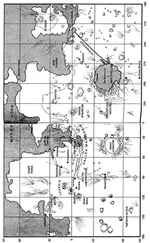Kim Robinson - Blue Mars
Здесь есть возможность читать онлайн «Kim Robinson - Blue Mars» — ознакомительный отрывок электронной книги совершенно бесплатно, а после прочтения отрывка купить полную версию. В некоторых случаях можно слушать аудио, скачать через торрент в формате fb2 и присутствует краткое содержание. Год выпуска: 1996, ISBN: 1996, Издательство: Spectra/Bantam Dell/Random House, Жанр: Космическая фантастика, на английском языке. Описание произведения, (предисловие) а так же отзывы посетителей доступны на портале библиотеки ЛибКат.
- Название:Blue Mars
- Автор:
- Издательство:Spectra/Bantam Dell/Random House
- Жанр:
- Год:1996
- ISBN:0-553-10144-7
- Рейтинг книги:3 / 5. Голосов: 1
-
Избранное:Добавить в избранное
- Отзывы:
-
Ваша оценка:
- 60
- 1
- 2
- 3
- 4
- 5
Blue Mars: краткое содержание, описание и аннотация
Предлагаем к чтению аннотацию, описание, краткое содержание или предисловие (зависит от того, что написал сам автор книги «Blue Mars»). Если вы не нашли необходимую информацию о книге — напишите в комментариях, мы постараемся отыскать её.
Green Mars
The Martian Chronicles
Dune
Piblishers Weekly st
Blue Mars — читать онлайн ознакомительный отрывок
Ниже представлен текст книги, разбитый по страницам. Система сохранения места последней прочитанной страницы, позволяет с удобством читать онлайн бесплатно книгу «Blue Mars», без необходимости каждый раз заново искать на чём Вы остановились. Поставьте закладку, и сможете в любой момент перейти на страницу, на которой закончили чтение.
Интервал:
Закладка:
Meanwhile, in the human world there were still fierce conflicts going on everywhere, on both worlds. But it seemed to Sax that the crisis had somehow gotten beyond war. Flood, ice age, population boom, social chaos, revolution; perhaps things had gotten so bad that humanity had shifted into some kind of universal catastrophe rescue operation, or, in other words, the first phase of the postcapi-talist era.
Or maybe he was just getting overconfident, buoyed by the events on Daedalia Planitia. His Da Vinci associates were certainly very worried, they spent hours onscreen telling him every little thing about the arguments ongoing in east Pavonis. But he had no patience for that. Pavonis was going to become a standing wave of argument, it was obvious. And the Da Vinci crowd, worrying so — that was simply them. At Da Vinci if someone even raised his voice two decibels people worried that things were getting out of control. No. After his experience on Daedalia, these things simply weren’t interesting enough to engage him. Despite the encounter with the storm, or perhaps because of it, he only wanted to get back out into the country. He wanted to see as much of it as he could — to observe the changes wrought by the removal of the mirrors — to talk to various terraform-ing teams about how to compensate for it. He called Nanao in Sabishii, and asked him if he could come visit and talk it over with the university crowd. Nanao was agreeable.
“Can I bring some of my associates?” Sax asked.
Nanao was agreeable.
And all of a sudden Sax found he had plans, like little Athenas jumping out of his head. What would Hiroko do about this possible ice age? That he couldn’t guess. But he had a large group of associates in the labs at Da Vinci who had spent the last decades working on the problem of independence, building weapons and transport and shelters and the like. Now that was a problem solved, and there they were, and an ice age was coming. Many of them had come to Da Vinci from his earlier terraforming effort, and could be talked into returning to it, no doubt. But what to do? Well, Sabishii was four kilometers above the datum, and the Tyrrhena massif went up to five. The scientists there were the best in the world at high-altitude ecology. So: a conference. Another little Utopia enacted. It was obvious.
That afternoon Sax stopped his rover in the saddle between Pavonis and Arsia, at the spot called Four Mountain View — a sublime place, with two of the continent-volcanoes filling the horizons to north and south, and then the distant bump of Olympus Mons off to the northwest, and on clear days (this one was too hazy) a glimpse of Ascraeus, in the distance just to the right of Pavonis. In this spacious sere highland he ate his lunch, then turned east, and drove down toward Nicosia, to catch a flight to Da Vinci, and then on to Sabishii.
He had to spend a lot of screen time with the Da Vinci team and many other people on Pavonis, trying to explain this move, reconciling them to his departure from the warehouse meetings. “I am in the warehouse in every sense that matters,” he said, but they wouldn’t accept that. Their cerebellums wanted him there in the flesh, a touching thought in a way. “Touching” — a symbolic statement that was nevertheless quite literal. He laughed, but Nadia came on and said irritably, “Come on, Sax, you can’t give up just because things are getting sticky, in fact that’s exactly when you’re needed, you’re General Sax now, you’re the great scientist, you have to stay in the game.”
But Hiroko showed just how present an absent person could be. And he wanted to go to Sabishii.
“But what should we do?” Nirgal asked him, and others too in less direct ways.
The situation with the cable was at an impasse; on Earth there was chaos; on Mars there were still pockets of meta-national resistance, and other areas in Red control, where they were systematically tearing out all terraforming projects, and much of the infrastructure as well. There were also a variety of small revolutionary splinter movements that were taking this opportunity to assert their independence, sometimes over areas as small as a tent or a weather station.
“Well,” Sax said, thinking about all this as much as he could bear to, “whoever controls the life-support system is in charge.”
Social structure as life-support system — infrastructure, mode of production, maintenance … he really ought to speak to the folks at Separation de 1’Atmosphere, and to the tentmakers. Many of whom had a close relation to Da Vinci. Meaning that in certain senses he himself was as much in charge as anyone. A bad thought.
“But what do you suggest we do?” Maya demanded; something in her voice made it clear she was repeating the question.
By now Sax was closing in on Nicosia, and impatiently he said, “Send a delegation to Earth? Or convene a constitutional congress, and formulate a first approximation constitution, a working draft.”
Maya shook her head. “That won’t be easy, with this crowd.”
“Take the constitutions of the twenty or thirty most successful Terran countries,” Sax suggested, thinking out loud, “and see how they work. Have an AI compile a composite document, perhaps, and see what it says.”
“How would you define most successful?” Art asked.
“Country Futures Index, Real Values Gauge, Costa Rica Comparisons — even Gross Domestic Product, why not.” Economics was like psychology, a pseudoscience trying to hide that fact with intense theoretical hyperelaboration. And gross domestic product was one of those unfortunate measurement concepts, like inches or the British thermal unit, that ought to have been retired long before. But what the hell — use several different sets of criteria, human welfare, ecologic success, what have you.”
“But Sax,” Coyote complained, “the very concept of the nation-state is a bad one. That idea by itself will poison all those old constitutions.”
“Could be,” Sax said. “But as a starting point.”
“All this is just sidestepping the problem of the cable,” Jackie said.
It was strange how certain elements of the greens were as obsessed by total independence as the radical Reds. Sax said, “In physics I often bracket the problems I can’t solve, and try to work around them and see if they don’t get solved retroactively, so to speak. To me the cable looks like that kind of problem. Think of it as a reminder that Earth isn’t going to go away.”
But they ignored that, arguing as they were over what to do about the cable, what they might do about a new government, what to do about the Reds who had apparently abandoned the discussion, and so on and so forth, ignoring all his suggestions and getting back to their ongoing wrangles. So much for General Sax in the postrevolutionary world.
Nicosia’s airport was almost shut down, and yet Sax did not want to go into the town; he ended up flying to Da Vinci with some friends of Spencer’s from Dawes’s Forked Bay, flying a big new ultralight they had built just before the revolt, in anticipation of the freedom from the need for stealth. As the AI pilot floated the big silver-winged craft over the great maze of Noctis Labyrinthus, the five passengers sat in a chamber on the bottom of the fuselage which had a large clear floor, so that they could look over the arms of their chairs at the view below; in this case, the immense linked network of troughs which was the Chandelier. Sax stared down at the smooth plateaus that stood between the canyons, often islanded; they looked like nice places to live, somewhat like Cairo, there on the north rim, looking like a model town in a glass bottle.
The plane’s crew started talking about Separation de 1’Atmosphere, and Sax listened closely. Although these people had been concerned with the revolution’s armaments and with basic materials research, while “Sep” as they called it had dealt with the more mundane world of mesocosm management, they still had a healthy respect for it. Designing strong tents and keeping them functioning was a task with very severe consequences for failure, as one of them said. Criticalities everywhere, and every day a potential adventure.
Читать дальшеИнтервал:
Закладка:
Похожие книги на «Blue Mars»
Представляем Вашему вниманию похожие книги на «Blue Mars» списком для выбора. Мы отобрали схожую по названию и смыслу литературу в надежде предоставить читателям больше вариантов отыскать новые, интересные, ещё непрочитанные произведения.
Обсуждение, отзывы о книге «Blue Mars» и просто собственные мнения читателей. Оставьте ваши комментарии, напишите, что Вы думаете о произведении, его смысле или главных героях. Укажите что конкретно понравилось, а что нет, и почему Вы так считаете.












